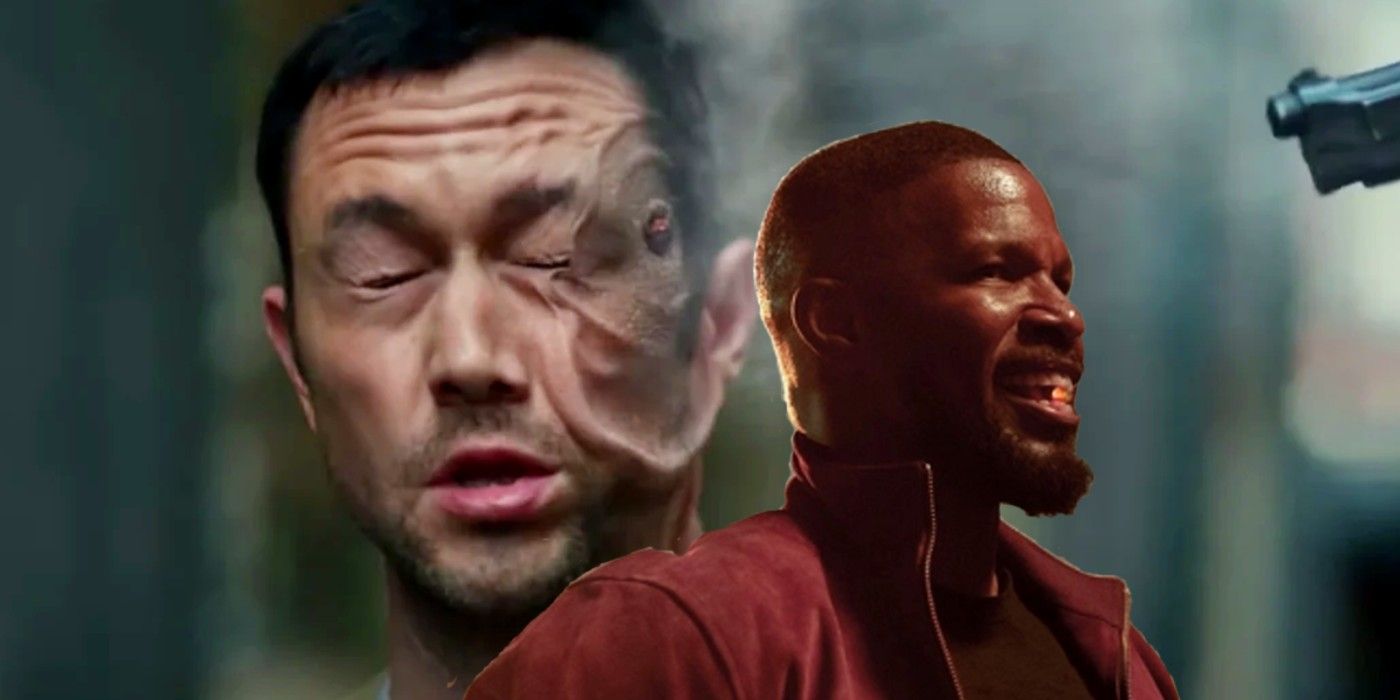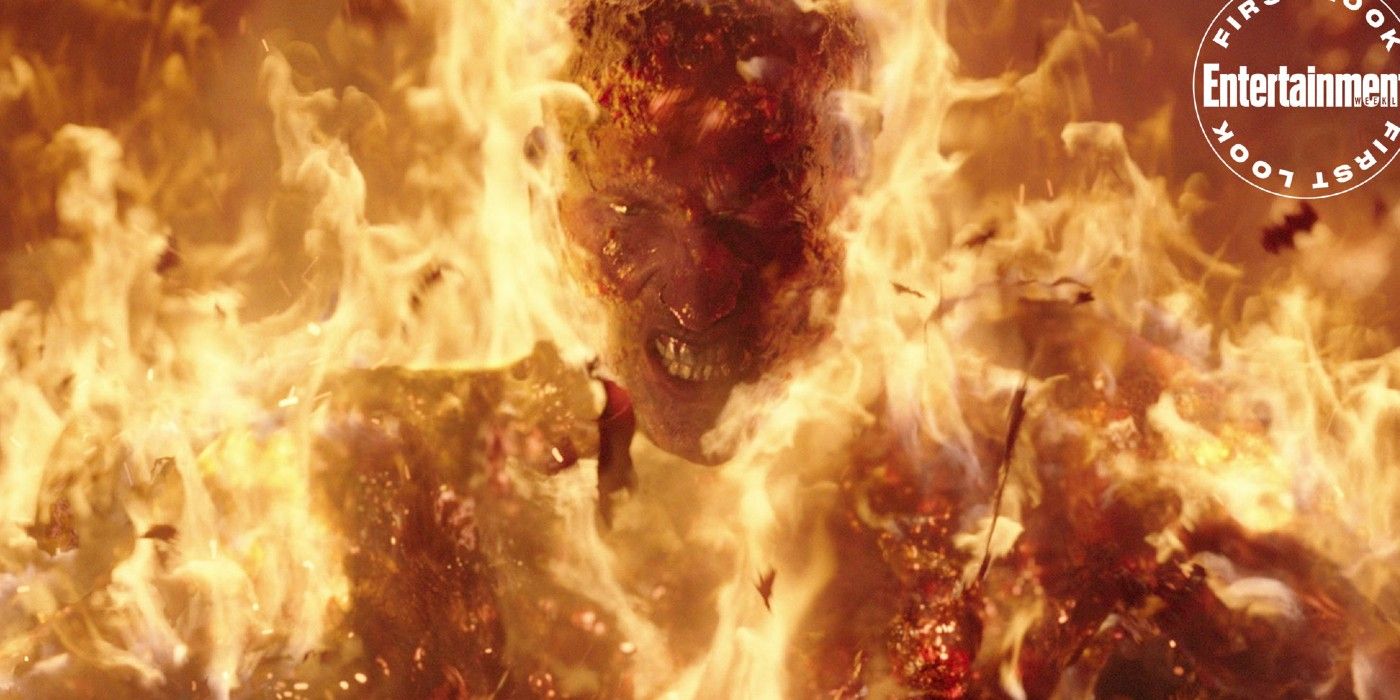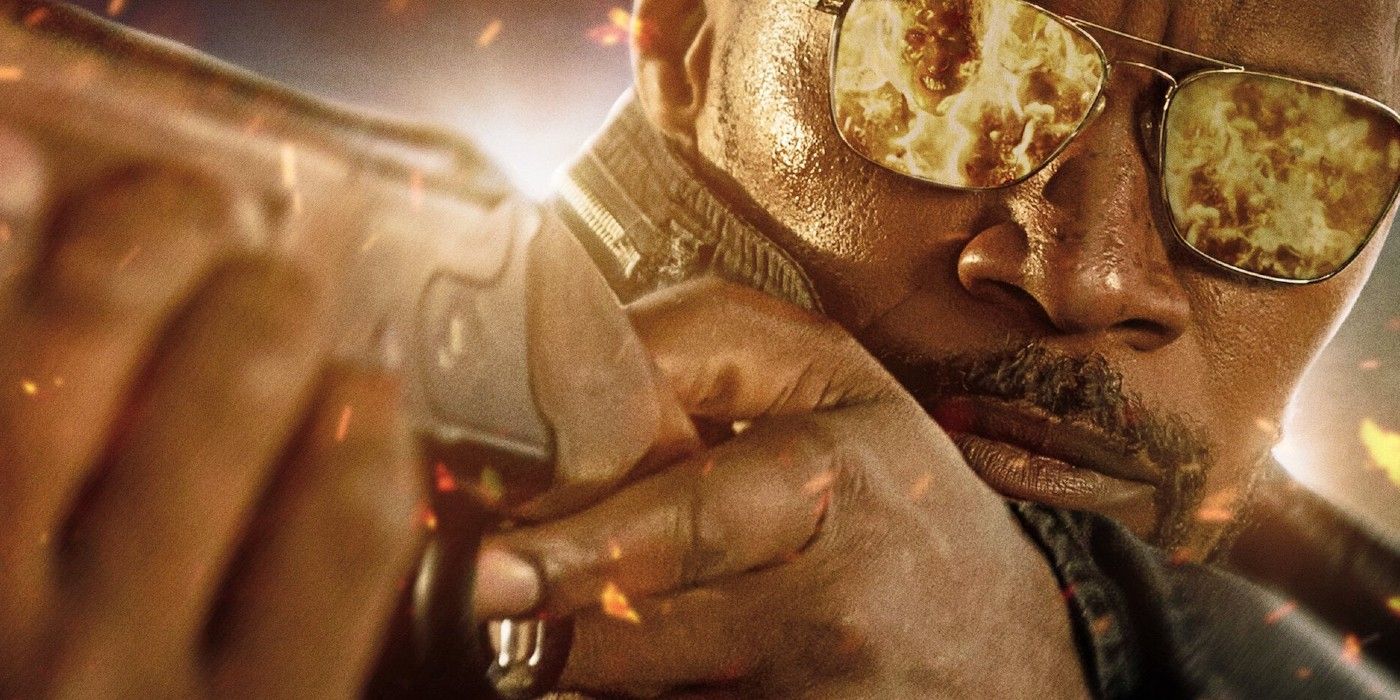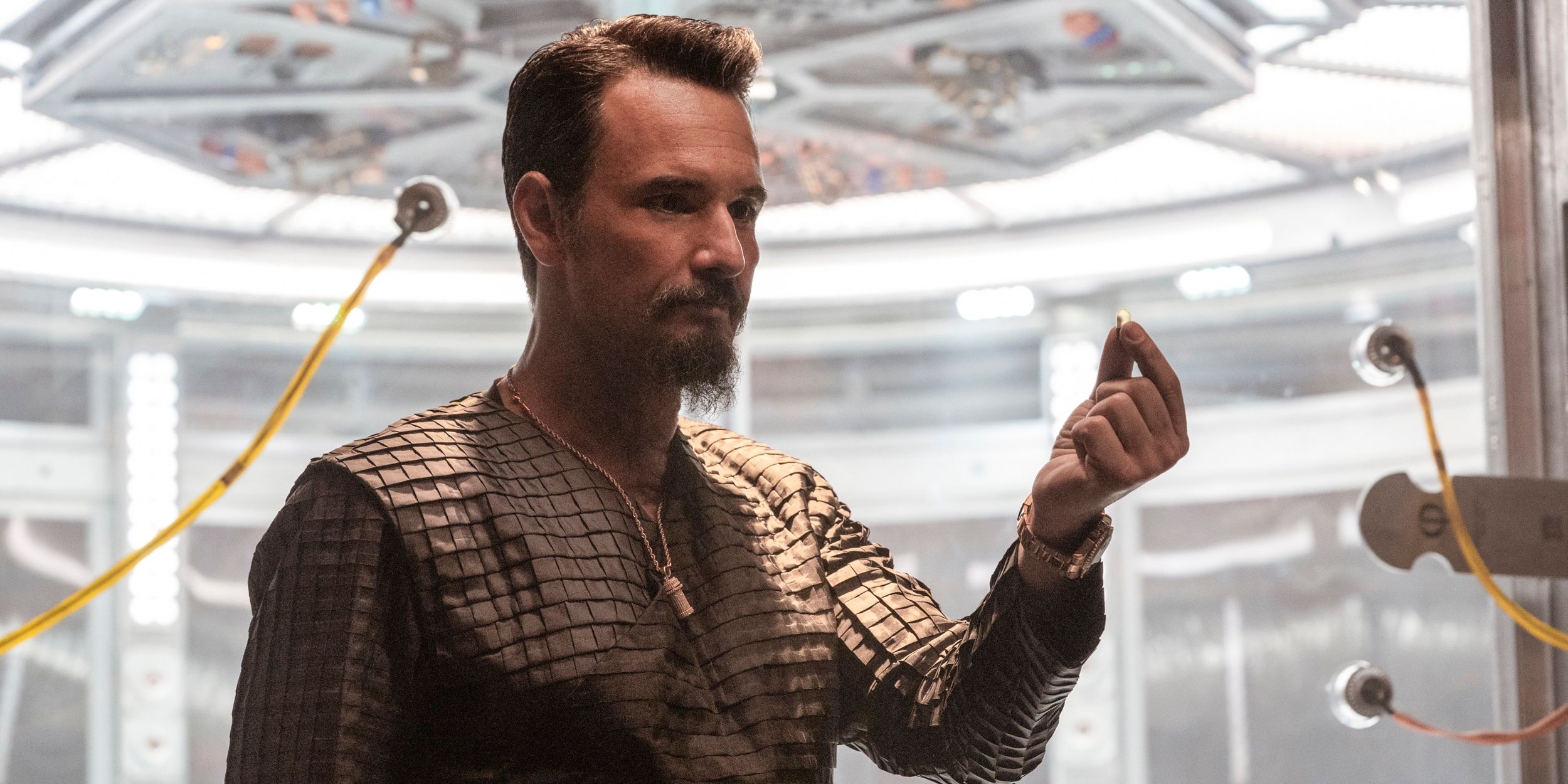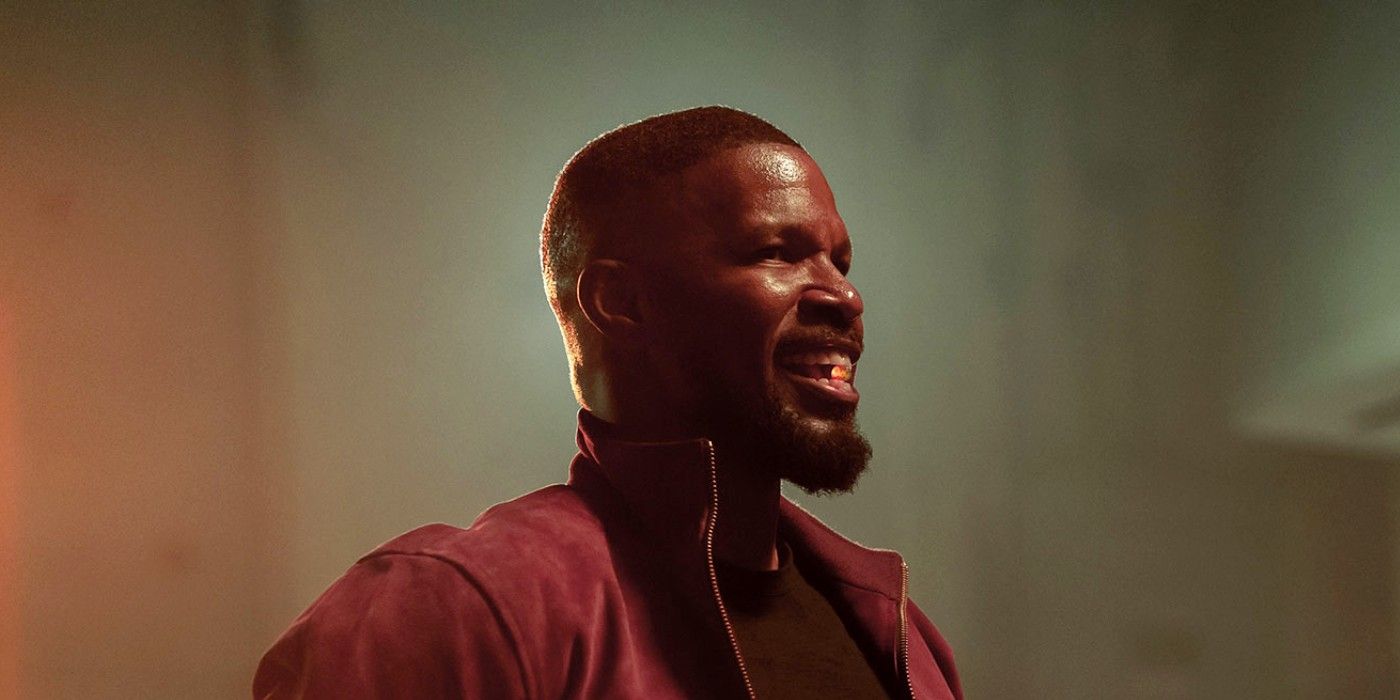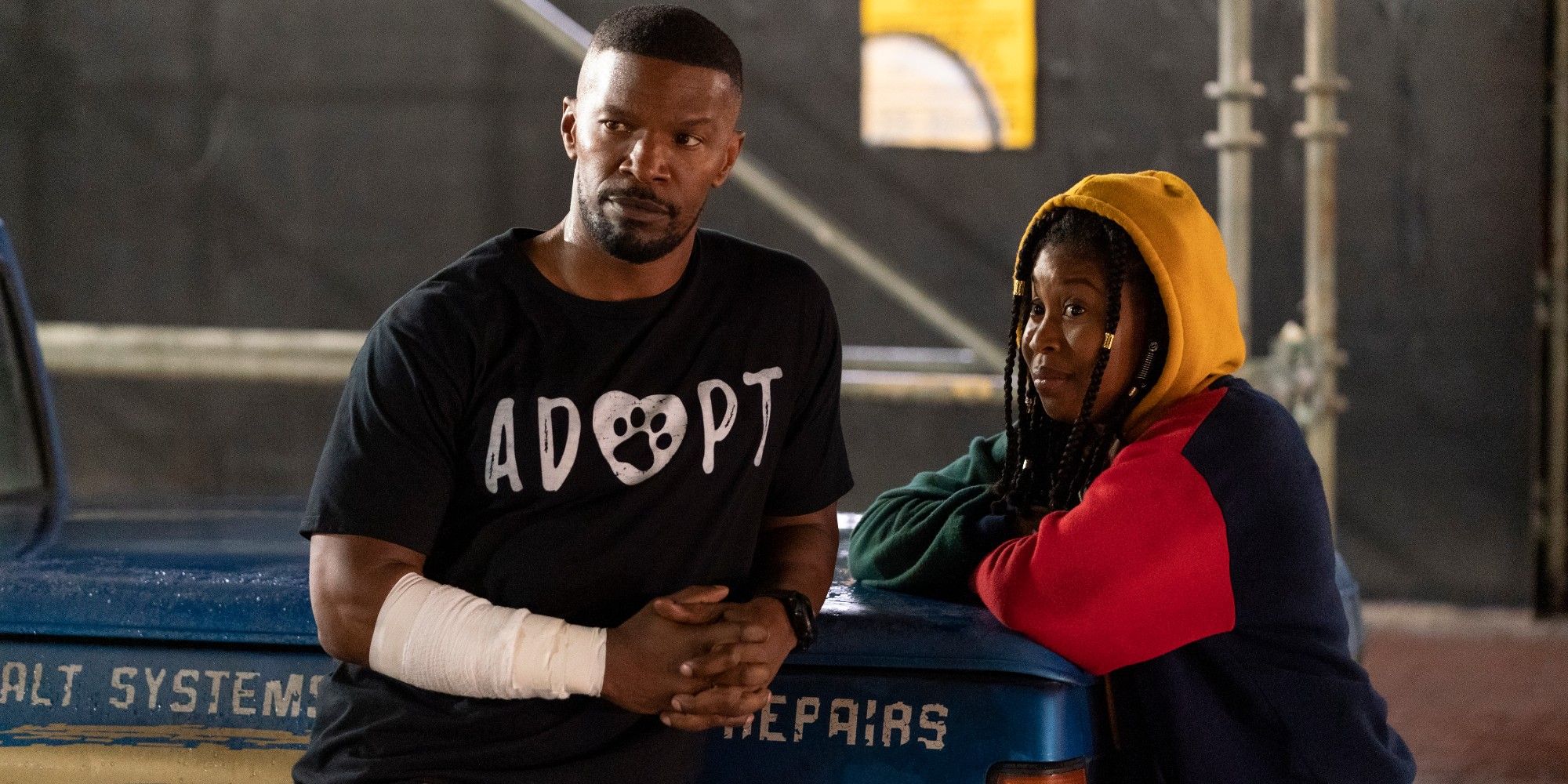While its reviews have so-far been mixed, Netflix's blockbuster high-concept superhero movie, Project Power is an engaging alternative to the DCEU and the MCU. Starring Jamie Foxx, Joseph Gordon-Levitt, and The Deuce's Dominique Fishback, the $85m project hit the top spot of Netflix's top 10 on both sides of the Atlantic quickly after release as an indication of its appeal. If the numbers are right, the streaming platform will no doubt follow in the wake of their confirmation of The Old Guard 2 with a follow-up, though if they want writer Mattson Tomlin to return, they may have to wait until he's finished with The Batman.
Project Power follows a similar sci-fi path as Limitless and the excellent Upgrade, exploring humanity's potential through augmentation. Like Limitless, the key to unlocking the latent spectrum of powers within an individual is a new mega-drug developed by a nefarious corporation with less than squeaky clean morals. And in Project Power, the potential of the drug-taker is a seemingly random genetically coded superpower that could lead you to becoming the next Superman for ten minutes or exploding in a shower of guts. And all the while, a veteran (Jamie Foxx) seeks his kidnapped daughter whose powers link to the drug's creation, with a cop (Joseph Gordon-Levitt) who takes the drug on his tail and the teenage dealer locked into a caper to find the source of Power.
There are key takeaways from Project Power, which is likely to be successful on Netflix having cornered the market on available blockbusters, and while the ending appears to add some full-stops to each character, it's not as simple as it may appear. The concept is high enough that there are complications in the ending that require explanation, not to mention the whole issue of how superpowers work, where they came from, and what could happen next.
How Do Superpowers Work In Project Power?
Here are the big questions: how exactly does taking a Power pill gift the taker superpowers, why are they all different and why do some of them backfire so badly? The short answer comes from Art himself, mixed in with some of the scientific exposition from the demonstration sales pitch sequence by villain Biggie (played by Rodrigo Santoro). As Art puts it "we get these powers from animals" and Biggie's presentation reveals that animals developed specific evolutionary superpowers like thermoregulation, self-regeneration, biological weaponry, and enhanced abilities to suit their environments. The same powers lie latent in humans, but each person has one random power depending on which animal they share their evolutionary gift with. The film stops short of saying that the individuals are evolved from those animals and the evolutionary line is muddled when the element of randomness is introduced, but that's the internal logic established.
The other element at play here is that some Power users simply explode when they take the pills, pushing this almost into Netflix's horror category for a moment. One unfortunate potential buyer at the demonstration to the mysterious South Americans pops one and then pops himself. That's not because his superpower is spontaneous combustion, it's because the drug is unstable, which is why it's being so rigorously tested in the community; to find a way to control its erratic effects.
What Are Art's Powers (And Why Does He Refuse To Use Them?)
The escalation at the end of the film aboard the Teleios freighter finally sees Jamie Foxx's Art reveal his own superpower after hinting at it throughout the film (and warning ominously that bad things would happen). As Art explains to the cowardly guard who frees him on the ship, his power mirrors that of a pistol shrimp and he's able to super-heat the air around him and create shockwaves and intense bubbles to shoot at great speed at enemies who end up liquified. The pistol shrimp is capable of generating temperatures that rival the surface of the sun (8,000°F ) to kill their prey.
Art refuses to use his power up to that point because of a hinted past event where he used his power and "people got hurt." By which he presumably means liquified at tremendous speed and temperature. Given the revelation of his powers is then matched by the reveal that his daughter has a revival superpower built into her genes, it seems he may have previously died and been revived and doesn't wish to unleash his powers again in fear of collateral damage and dying himself. It's only when he knows his daughter is safe that he's willing to make the greatest sacrifice to help free Robin.
What Comes Next: Is Teleios Dead?
Art may have killed Dr. Gardner, the assumed head of Teleios' project and the majority of her underlings, but does that mean the entire Teleios operation is dead? Art is told by Biggie that the "whole operation" is run out of the Genesis ship, but an organization capable of bribing entire police forces, running complex city-wide observation programs on test subjects, and controlling a drug and science empire must have wider nets. After all, Art reveals that Tracy gained her powers because he was genetically experimented on by Teleios when he left the military along with other former G.I.s. That at the very least suggests the was some government involvement and there's just enough suggestion that there could be more to the operation than Art and Frank are so far aware that Netflix could mine a sequel out of Project Power. It's intriguing that Frank asks Art, "is it really over?" Because it genuinely may not be.
There Are Other Potentially Superpowered People Out There
There are hints in Project Power that Art's story is not isolated. The whole point of him leaving on the assertion that it is over for him suggests he knows there could be more out there and it's unlikely he's referring to Frank reporting Teleios' activities and the corruption right to the top of the NOPD. To follow the hints back through the film, he could be referring to the possibility of other superpowered second-generation subjects like Tracy.
Courtney B. Vance's tiny role as Captain Crane seems only to exist for him to tell Frank (Joseph Gordon-Levitt) that Art is the "source of Power" and he isn't lying. Frank's genes, which were zapped with radioactive material to see if he could be superpowered were then passed on to his daughter, who was born a couple of years later. He passed on his activated superpowered DNA through the genetic material of his sperm and his daughter was born naturally powered without the need for the Power pill. Presumably, the same must be the case of all of the initial test subjects' children? Could there be a squadron of superheroes and villains spread across America hiding their powers? It would certainly set up an interesting sequel, to say the least.
The Real Meaning Of Project Power
While it may seem strange to be seeking higher meaning in a glossy superhero movie, there is more at play here than a mere spandex and fistfight flick. Despite Netflix's looser censorship concerns, Project Power doesn't deliver on its morality messages in great detail - ignoring the interesting implications both of the social impact of Hurricane Katrina on New Orleans and Frank's willingness to break the law to uphold the law - but it does go in on Robin's arc as something with more complexity. Her community is one destroyed by the aftermath of Hurricane Katrina and the conditions are perfectly suited to Teleios' exploitation using Power. The drug offers a promise of exceptionalism in a world that has otherwise forgotten those people and it's a struggle Robin has fallen into herself.
Her story is one of a girl lost in a rotten system as a product of her environment and circumstances: her mother is ill, the family is poor (hence her turning to selling Power), her school can do nothing for her and her community is decimated by corrupt officials and the long0term aftermath of Katrina. The fact that she herself avoids taking Power, despite access to it, and seeks a way out for her mother and herself is testament to her goodness. As Art tells her at the end of the movie, there is greatness within her and she must use it. The film's over-arching morality message is about finding that strength within: each of Project Power's main characters has it and it's seen in Art's willingness to do anything to get his daughter back, Frank's commitment to anti-corruption and justice, and in Robin's fierce determination to better herself. In a slightly on-the-nose parallel to a sub-plot from Space Jam, while Project Power is about cartoonish superpowers, it is also fundamentally about finding the special stuff inside.

